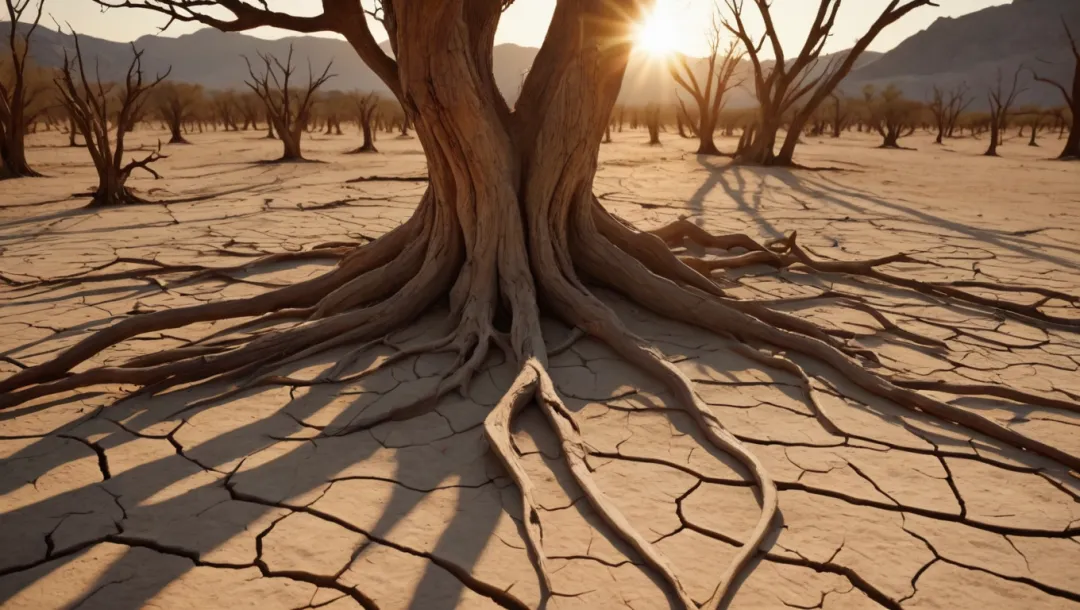Heatwaves Halt Tree Photosynthesis

In a startling revelation that has ricocheted through the scientific community, recent studies have confirmed that trees—the veritable lungs of our planet—are struggling to photosynthesize amidst record-breaking heatwaves. This alarming development threatens not only the survival of forests worldwide but also the balance of our global ecosystem.
Researchers from the University of Arizona have observed that prolonged exposure to extreme temperatures has caused a significant drop in photosynthetic activity in tree species across various biomes. These alarming findings were unveiled at the International Conference on Climate Change in Berlin, where experts gathered to discuss the immediate impacts of global warming on terrestrial flora.
Professor Linda S. Greene, the lead researcher, emphasized the gravity of the situation: ‘Photosynthesis is the foundational process that supports plant life and, by extension, all terrestrial life. Seeing this process falter under the stress of heat stress is a stark warning that our planet is entering uncharted territory.’
The study indicates that when temperatures soar beyond a certain threshold, the photosynthetic machinery within leaves breaks down. Consequently, trees are unable to convert carbon dioxide into the oxygen we breathe and the glucose they require for growth. This not only compromises the health of the trees themselves but also exacerbates the atmospheric CO2 levels, potentially accelerating the pace of climate change.
The fallout from this photosynthetic crisis is far-reaching. From the Amazon rainforest to the Siberian taiga, trees are showing signs of distress. Ecologists fear that the continued rise in global temperatures could lead to widespread forest die-offs, fundamentally transforming these habitats and the biodiversity they support.
The findings have spurred calls for immediate action from environmentalists and policymakers alike. ‘We need to reduce our carbon footprint now more than ever,’ asserts Dr. Michael Thorndike, an environmental policy analyst. ‘The evidence is clear: our planet’s health is intimately linked with the well-being of its forests. We cannot afford to ignore these warning signs.’
While the challenge is formidable, there is a collective push for innovation in sustainable practices and urgent advocacy for policies that address climate change. The hope is to mitigate the damage and secure a future where trees and humans alike can thrive on a healthy, resilient Earth.







